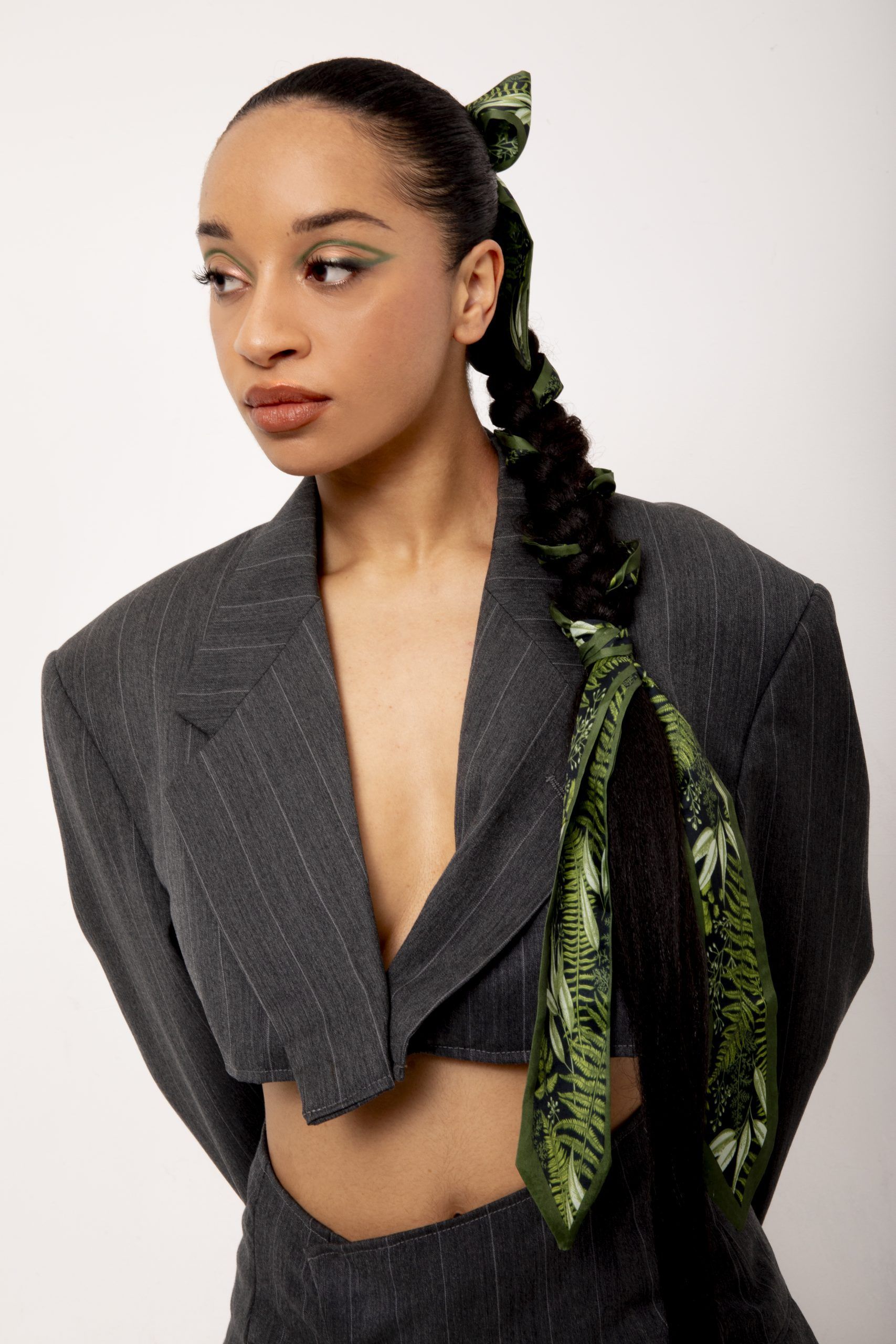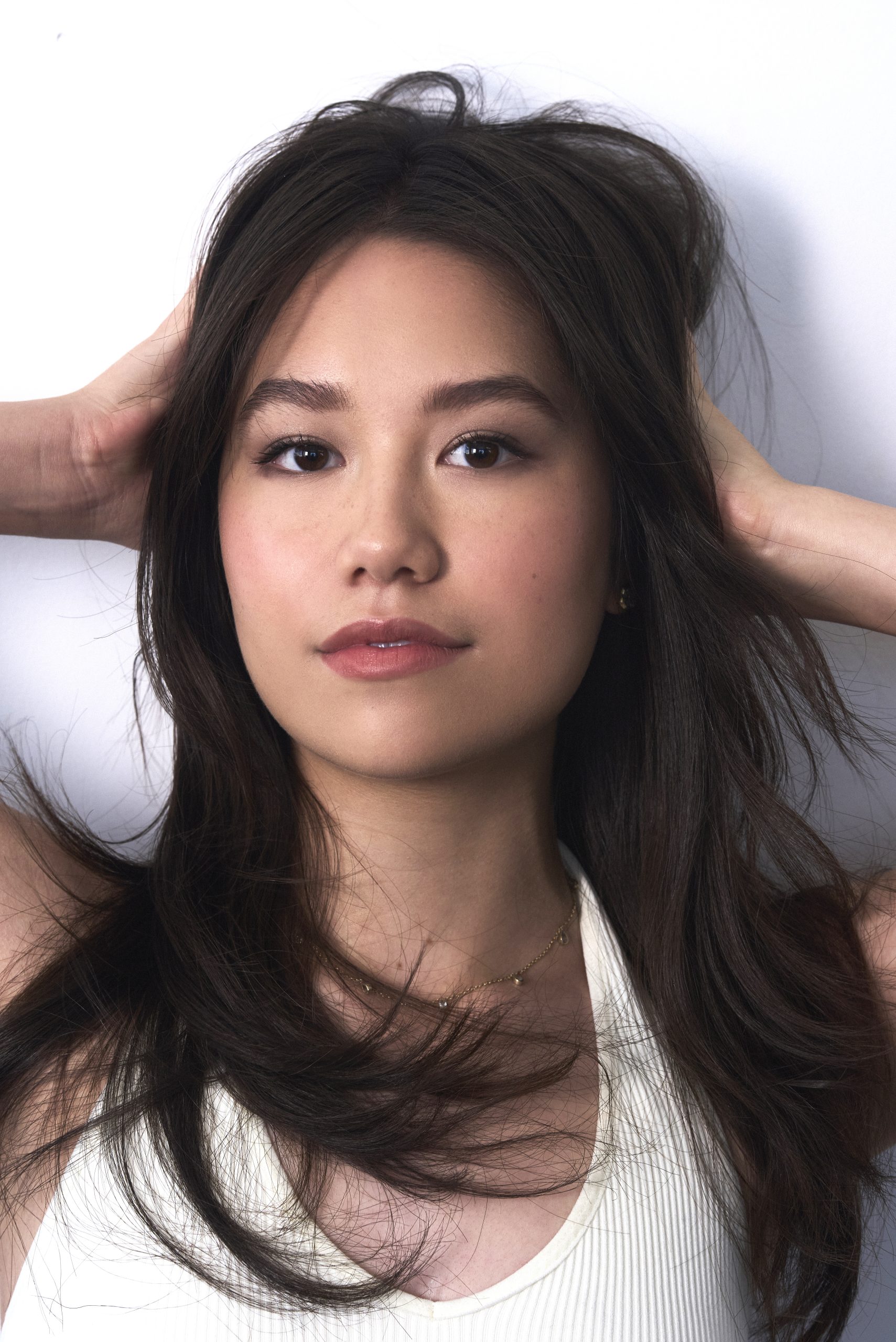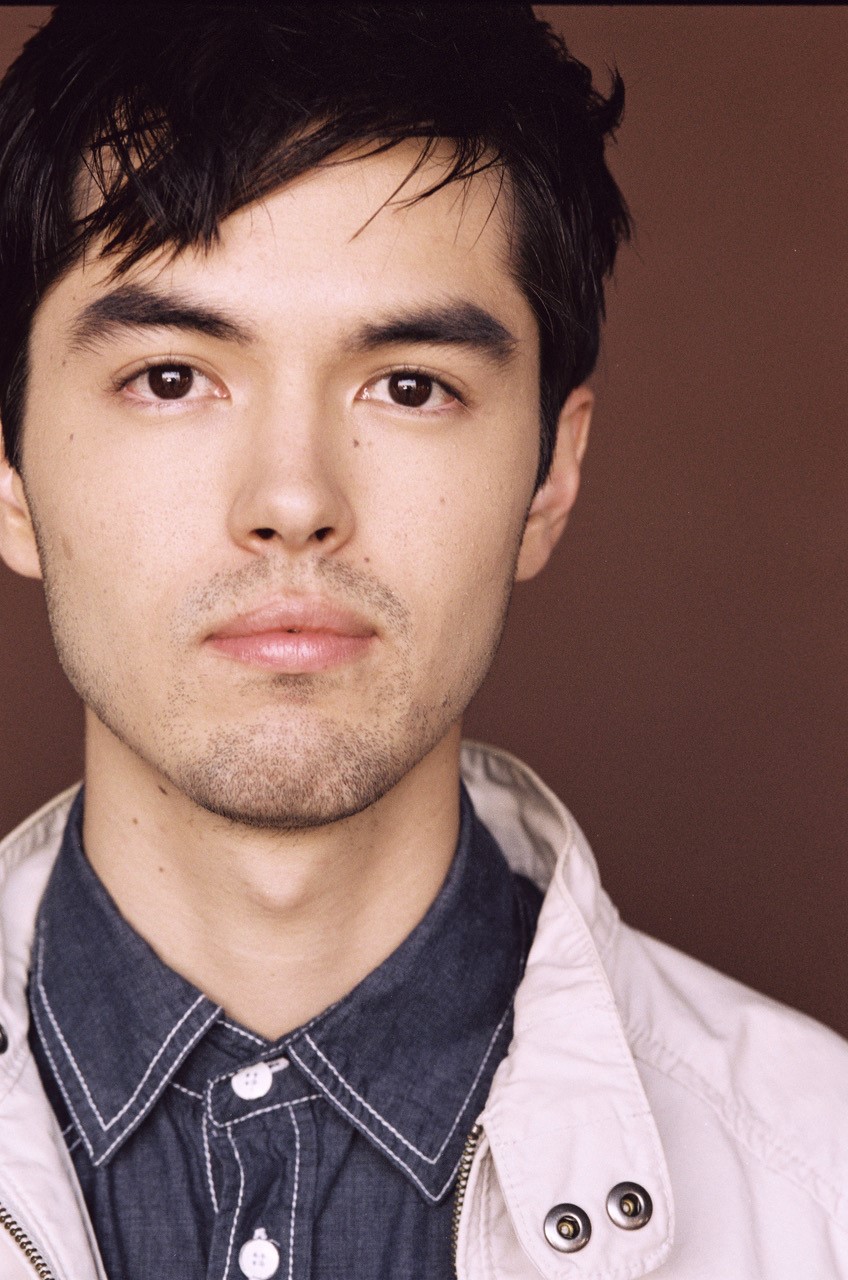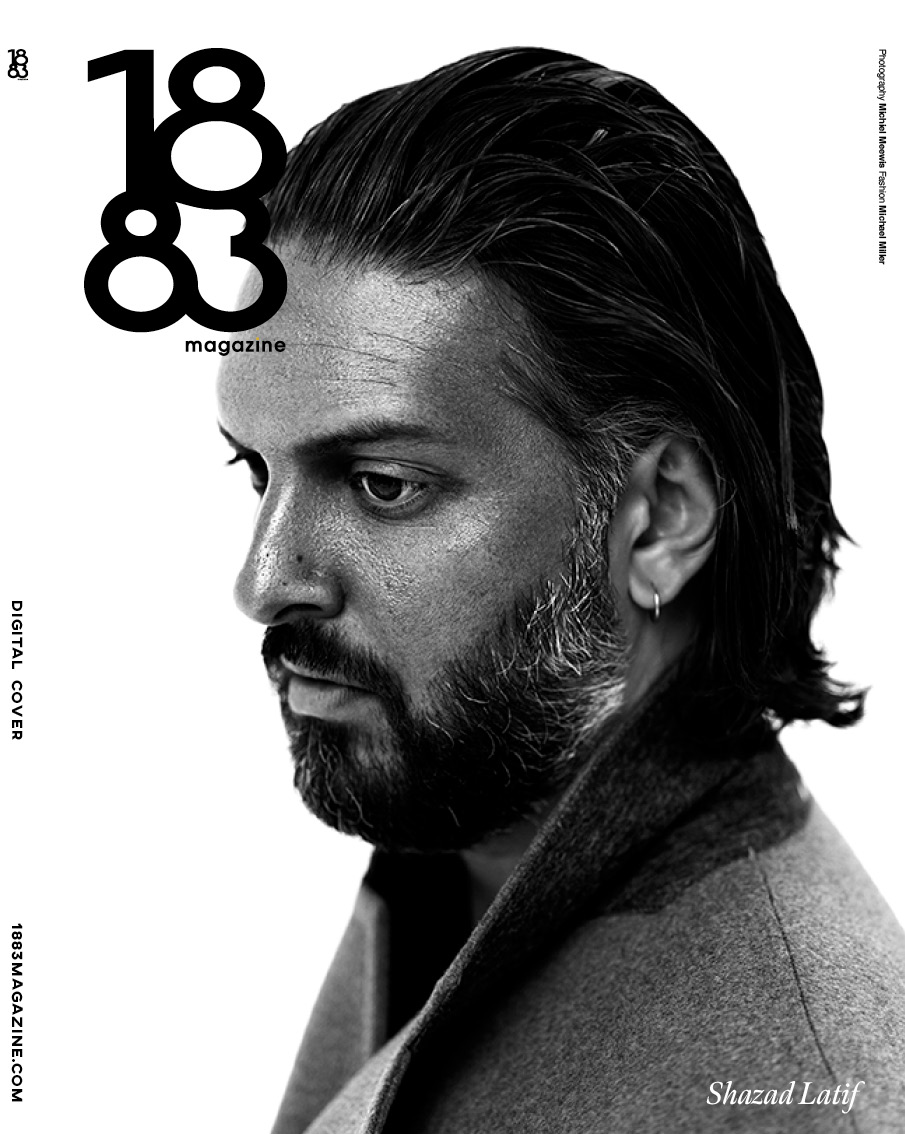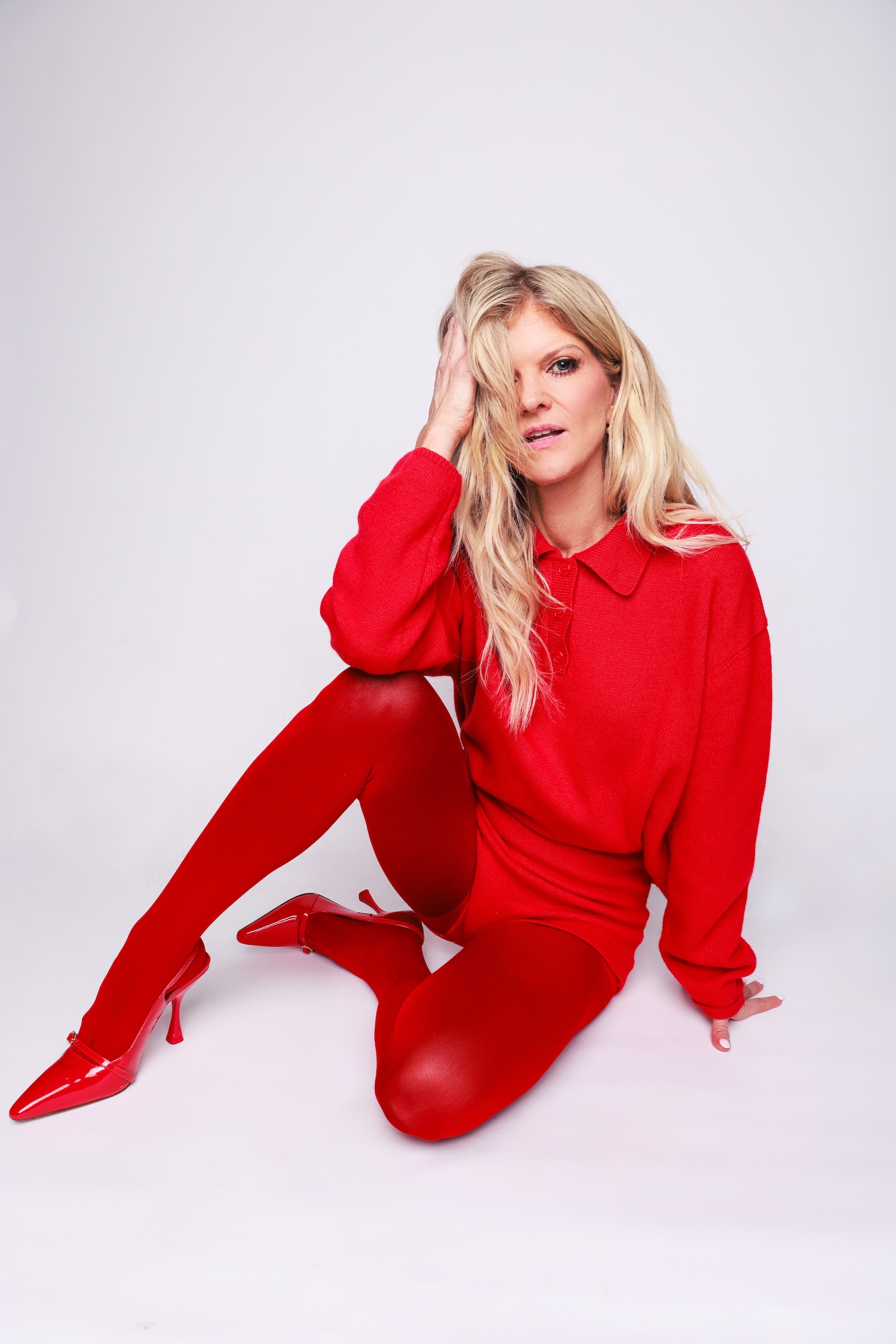Actor Siena Kelly approaches her craft with such vigour that it’s hard not to be spellbound by her performances.
Since bounding onto London’s theatre scene with On The Town at Regent’s Park Open Air Theatre in 2017, the Camden-born actor has steadily built a solid, carefully curated portfolio of interesting projects. Alongside roles in A Christmas Carol at the Old Vic and, more recently, a lead in the upcoming Tudor-era play 1536 at The Almeida, Kelly has also carved out space on screen. She’s taken on a string of television roles, from Channel 4’s Adult Material—which earned her a BAFTA nomination—to the BBC’s Domino Day, where her character hunts victims through dating apps. No matter the role, she brings the same level of energy and care to each one.
Like all actors navigating an ever-changing industry, she’s faced her fair share of rejection, but never let it derail her passion. After missing out on a role in season six of Black Mirror, she said it unexpectedly inspired the more carefree, one-take audition she sent in for season seven—something she revealed over a spring evening Zoom chat. What began as a minor part in the previous season has grown into a starring role in the Bête Noire episode of Charlie Brooker’s acclaimed sci-fi anthology.
1883 Magazine sits down with Siena Kelly to talk Black Mirror, 1536, yoga and more.
Hi Siena, thanks for speaking with 1883 Magazine, I know an interview at 7pm is probably different to what you’re used to, so thank you for accommodating.
No worries — thank you for accommodating me as well!
Could you share an insight into what the audition process was like for Black Mirror’s Bête Noire? Because it’s obviously such a big show, and a lot of talent is probably keen to be involved. How did it come about?
I got this request to audition via my agent, and I didn’t take it very seriously, because obviously, it’s a massive show — last year they had Salma Hayek and things like that, so I was like, they’re not going to pick me. I had actually auditioned the year before for the Loch Henry episode, to play the girlfriend, and my audition went really well for that. I thought I got it — but I didn’t. And the person who did play it, Myha’la — I think she’s a fantastic actress — but I thought that was my one chance to get into Black Mirror. I thought that was going to be it.
So with this one, I didn’t feel very close to the character, I didn’t think I suited the part, so I didn’t take it very seriously. I just taped — did one take — and sent it. Then I got called in to meet the team, and again I just kind of felt like, let’s be real here, they’re not going to give me the part. So maybe it was my attitude that kind of helped me get it — because Maria, my character, is a bit hard.
Then a couple of days later I was called in to do a chemistry read. And when I was there, I was the only one staying. They were swapping out the character of Verity, and I thought, that’s weird — why am I the only one staying? So I thought they must be getting other actors to come in later to audition for Maria. I met Rosie (who plays Verity) in that audition — she was incredible. I turned around and said to the team, “You have to hire her.” She was unbelievable in her audition.
But what was really strange was, there were obviously cameras in the room — Toby Haynes, the director, was there, the producer Robert was there, the casting director was there — but they kept asking me to go off-camera. They kept edging me out of the frame, or asking me to turn my head. At one point Toby could see that I looked confused, and he was like, “Oh sorry, we’re just focusing on the Veritys right now.” And in my head, I was like, Why am I here? Damn — they’ve called me in as a free reader. They’re pretending it’s an audition but they’re just having me read for Maria.
Anyway, I did that, and I was packing up my stuff to go when Toby was like, “Oh Sienna, can you stay behind for a second?” And I was like, “Yeah, sure.” And then they offered me the part in the room.
I’ve never been offered a part in the room before — so I had no idea that I had the part while I was doing the chemistry read. Which is why they didn’t need me on camera. But I thought I was still auditioning — I was very confused as to why they kept asking me to get off the camera.
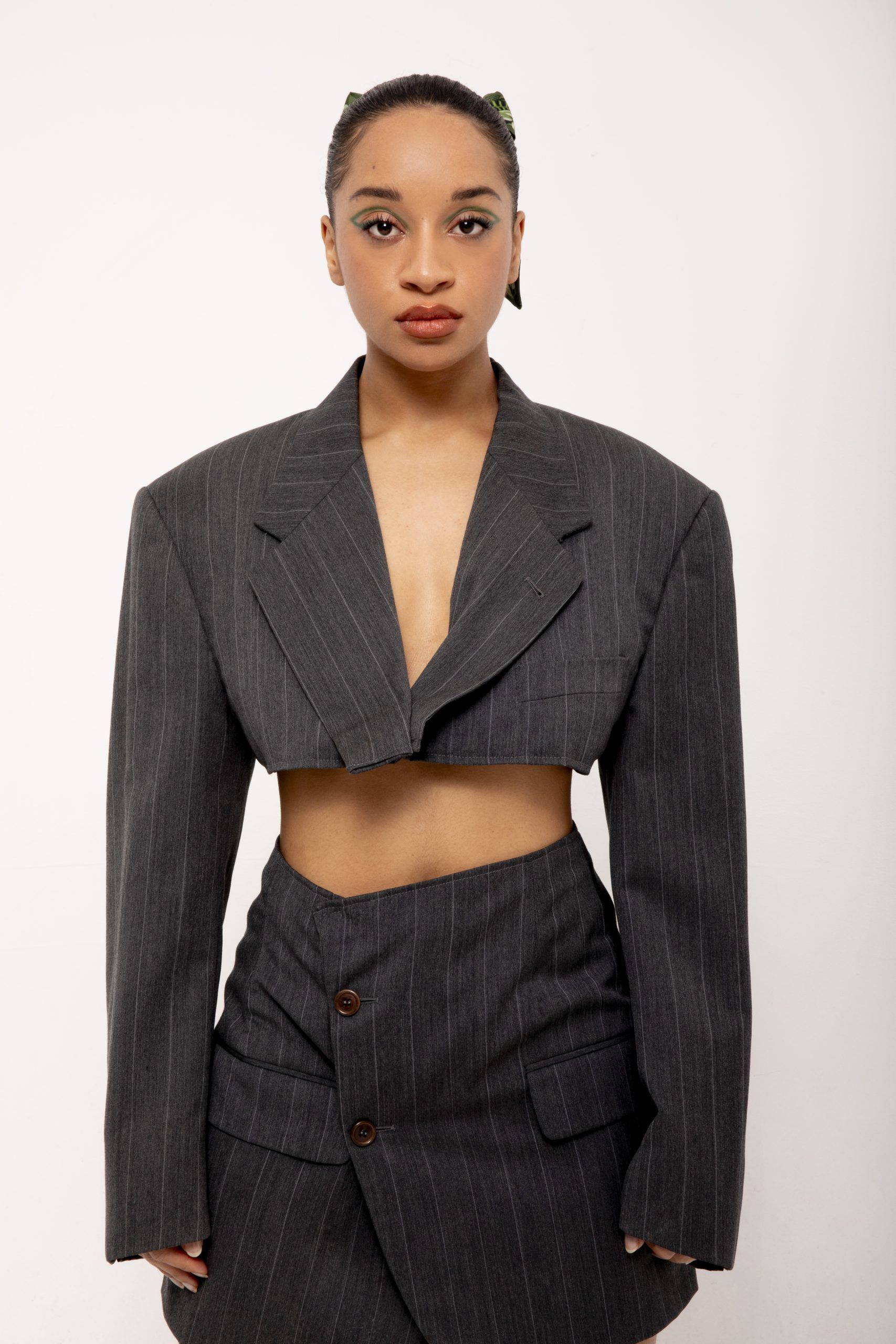
Your role, especially in the last few minutes of the episode, was fantastic. I’m curious — Maria’s clearly the top dog at food firm Ditta , but throughout the episode, she starts to unravel. What was it like getting into the headspace of a character who’s losing her grip on reality?
Yeah, it was actually really fun. We’ve got some wild takes that we did — Toby really pushed me and Rosie really far on set. He allowed us to go as big and as mental as possible. What ended up in the final edit is a lot more subtle, but I think I was really trying to be a good actor and figure out: Why is she behaving like this? What’s going on between her and Verity? What’s their history? I was really trying to figure it out.
And then Charlie Brooker came in one day during rehearsals and said to me, “She’s just petty. They’re just petty.” And that just freed everything up for me. I didn’t have to make sense of it anymore — everything was a knee-jerk reaction with both of them. Well, maybe not Verity — she’s a bit more calculated — but with Maria, it’s all impulsive. We filmed slightly chronologically — within each location, we shot in order. We actually filmed the ending first, and it took about four or five days to shoot just those final few minutes. It’s a big, ambitious ending, and it was really, really fun.
Honestly, I had a blast. I haven’t seen the rest of the Black Mirror episodes, but I assume ours is probably the lighter, more fun one. It’s not too existential — I don’t think people are going to come away from it shaking about the state of humanity. I have a few friends who don’t watch Black Mirror because it’s too dark for them — they can’t shake it. And I do think that every season has one episode that’s just a little more light-hearted and silly — one that laughs at us a bit.
There’s often some sort of meaning or moral in each episode, and I was trying to work this one out. I wondered if it was maybe something like “kids can be cruel” or “be kind to people at school”? What are your thoughts on a possible theme behind the episode?
I mean… what’s the moral of the story? I don’t know. I don’t know if Charlie Brooker does work like that. I think he just looks at humanity. I know he’s said before that Black Mirror isn’t actually a tech show — he’s never called it that. That’s just what people decided. It’s more of a show exploring humanity, and obviously, we created technology — so it’s just a mirror to us, because it came from humans.
So, who really gets punished in our episode? Maria’s not an angel. And you know the ending — maybe she did come out on top. I mean, I didn’t expect that turn, but… yeah, amazing.
So I don’t know if there’s a clear moral. Maybe it’s just: Life is unfair and unjust. Good people don’t always win. And who’s the “goodie” in our episode, anyway? I don’t think there is one. It’s definitely blurred.
You mentioned in a past interview that you made a playlist to help you get into character for Domino. Did you do the same for Black Mirror and Maria?
I did — for a couple of scenes where I needed to get into the right headspace. But with Maria, I was more inspired by other women and other characters I’ve watched — and real-life women I know. Real women in the media — those very ambitious, outwardly ambitious, ruthless, proud-of-it types. Dog-eat-dog.
I find those characters really inspiring at a distance. I love them in a character — I love playing a woman who wants the world and doesn’t care who knows it. Who’s not ashamed of how big her ambition is. Those characters are really fun to play. I’m actually playing one like that again in a play I’m rehearsing now. I find them really freeing.
Maybe it’s just my Britishness — where I don’t feel like I can aim for the world or say, “Yeah, I fucking want this and that, and I don’t give a shit.” I don’t actually want tens of millions of pounds, but it’s freeing to be able to say that. So yeah — for this one, it was less about a playlist and more about drawing on real people and characters I admire.

imagine you’re talking about 1536 at The Almeida. Since it’s set in Tudor England, does the script rely on Tudor-era language? And if so, does learning historical dialect become second nature over time?
Actually, it’s not written like that at all. It feels very modern — it’s definitely set in the Tudor era, and we’re in Tudor costumes, but we’re ordinary people. We’re not at court, not aristocracy. We’re working girls. There’s not much known about working-class people in Tudor England, and this play is really funny, furious, raucous — it’s naughty, it’s got dirt under its fingernails.
I think people will see behavior in it that they didn’t expect from people of that time. It’s really physical, really sweary — and yes, really sexy too. One of the easiest scripts I’ve had to learn, actually, because the language is so natural. The writer, Ava Pickett, this is her theatre debut — which is unbelievable, because it’s at The Almeida, and that’s a big deal. But she won the Susan Smith Blackburn Award, which is huge. Past winners include Lucy Kirkwood, Lucy Prebble, Alice Birch — all incredible writers.
So it’s a real testament to Ava. The script is full of energy. She used to write on The Great, and it has that same kind of chaotic, cheeky energy.
You’ve done work with Regent’s Park Open Air Theatre and The Old Vic. What do you get from theatre work that’s different from the TV side of your career?
I find being on stage more freeing than being in front of a camera. You can go big — I don’t have to worry about how I look at all. On camera, there’s more pressure to look a certain way. And I’m a big person — very expressive with my face, my body, my voice — so theatre suits me more. It feels more natural.
Camera acting is meant to be more naturalistic, but I don’t talk like that in real life — I use way more expression. So sometimes I feel a bit diminished on camera. Like I have to compress myself. The best parts I’ve played have mostly been on stage. The most challenging, interesting, controversial roles I’ve had have all been in theatre. So I think it’s my home. I feel the most comfortable there.
I’m learning to love acting for camera — it’s just different. Some people prefer it. But for me, theatre has that community energy. It’s less hierarchical, more grassroots. People say independent film has a similar energy, and I’ve done a little — but I’d love to do more.
Just out of curiosity, I read that you were studying to become a yoga teacher — how has that all gone?
I am qualified. I teach yoga, I’m not teaching right now because I’m doing the play, but I’m actually teaching tomorrow evening, after rehearsals. I teach at a few studios around North London.
I also teach for a charity — I work with Afghan refugee women, teaching yoga and meditation. I’m partnered with an amazing group called Nisaba, and they provide access to menstrual healthcare, education, and wellness support for Afghan refugee women. The woman who runs it, Komal Minhas, is a doctor for the NHS — I don’t know how she finds the time to do it all! But it’s amazing. It really feeds my soul.
Being nominated for a BAFTA for Adult Material must have been such an honour. But what does success as an actor look like to you?
I think… variety in roles. I do crave the respect of my community. I want people to say, “We’re working with Siena? Oh, she’s great.” I’d like that. That comes from doing good work, and being reliable, I think. And also — practically — just being able to pay for your life through acting. That doesn’t mean being a millionaire. Just… pay your rent, go on holiday, doing what you love.
That’s hard. So if you can do that, well done. I feel proud of the people I’ve worked with and the roles I’ve taken on. I’m proud of the responsibility I’ve been given — that people think I’m reliable, consistent. That I can handle the work.
But I’m also realistic. Theatre doesn’t pay much. Indie film doesn’t either. When your art becomes your livelihood, you have to compromise. You just do. So if someone takes a big TV role just to pay the bills? Go for it. I don’t judge that at all.
What would you like to manifest for yourself for the rest of the year — and why?
Finances [laughs]. That’s the first thing that popped into my head!
Black Mirror is out tomorrow on Netflix.
Interview Cameron Poole
Photography Jemima Marriot
Styling Jaime Jarvis
Hair Dionne Smith
Makeup Francesca Brazzo

